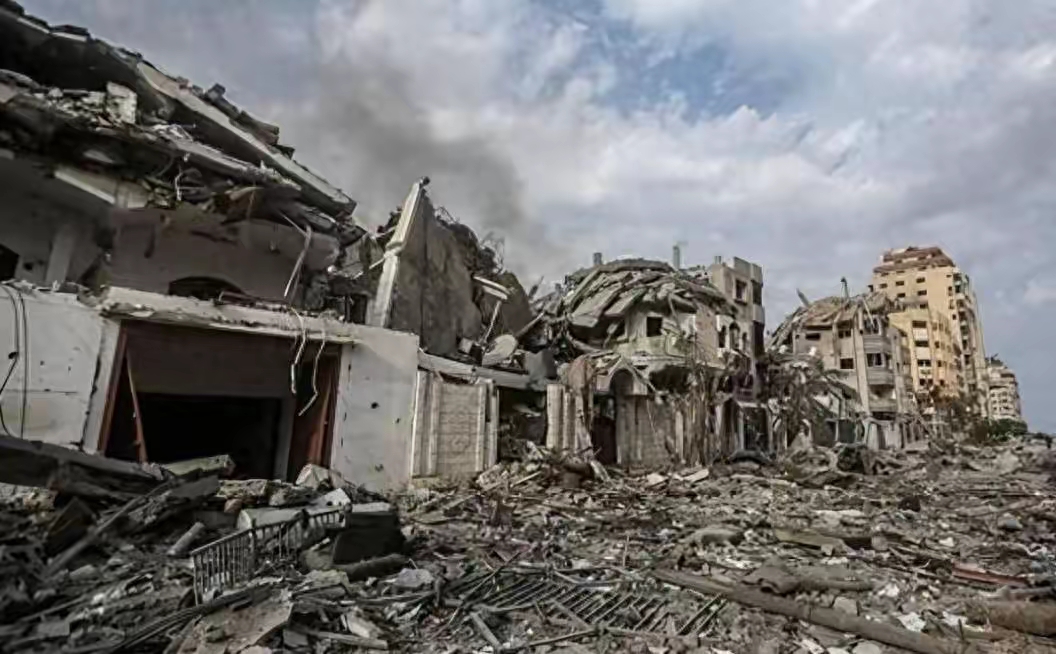
In the complex geopolitical landscape of the Middle East, the tense relationship between Israel and Iran has always been a focus of attention. Recently, Israel has launched a series of so-called "retaliatory" actions against Iran, which have attracted widespread attention and discussion in the international community. So, how effective is Israel's retaliation against Iran? Why didn't both sides escalate this conflict into a full-scale war?
1、 Israel's recent actions against Iran
Israel has carried out multiple military strikes against Iran in recent years, with a certain diversity of means and targets. From airstrikes on Iran's military facilities in Syria to attempts to assassinate Iranian nuclear scientists, Israel's actions aim to weaken Iran's influence in the region and the pace of its military and nuclear capabilities development.
For example, Israel has repeatedly deployed fighter jets to carry out airstrikes on military targets related to Iran in Syria. Syria holds a strategic position in the Middle East and maintains a close alliance with Iran. Iran can form a strategic deterrence against Israel to some extent by establishing military strongholds and facilities in Syria. Israel's airstrikes attempt to destroy these targets in order to reduce Iran's military presence threat in its vicinity.
In addition, Iran's nuclear program has always been a major concern for Israel. Israel believes that Iran's development of nuclear technology may be used for military purposes, posing a serious threat to its own security. For this reason, Israel has taken extreme measures, such as suspected involvement in the assassination of Iranian nuclear scientists. These scientists play a crucial role in Iran's nuclear development process, and their deaths undoubtedly pose certain obstacles and disruptions to Iran's nuclear research work.
2、 Analysis of the Effectiveness of Israel's Strike Against Iran
The Israeli airstrikes on Iranian military facilities in Syria have indeed caused some damage to the facilities to a certain extent. After some military strongholds, ammunition depots, command centers, etc. are hit, it will affect Iran's military deployment and operational capabilities in Syria in the short term. From a tactical perspective, Israel's airstrikes have high precision and can accurately hit targets, thanks to its advanced military technology and intelligence gathering capabilities.
However, from a strategic perspective, its effectiveness is relatively limited. Iran has strong resilience and resilience, and despite being hit, it will soon repair and rebuild damaged facilities. Moreover, Iran is constantly strengthening the concealment and defense capabilities of its military deployment in Syria, making it increasingly difficult for Israel to launch subsequent strikes. So, although Israel can achieve certain results in a single airstrike, it is difficult to fundamentally eliminate Iran's military influence in Syria.
3、 Why hasn't the war escalated further?
Iran has shown considerable restraint in the face of a series of provocations and strikes from Israel. This is mainly based on its own strategic considerations. Iran is well aware that once it engages in a full-scale war with Israel, it will fall into a prolonged quagmire of war, which will have a huge negative impact on its domestic economic development, social stability, and international image.
Iran's current main focus is still on domestic economic development and breaking through external sanctions, and a full-scale war with Israel is not in line with its overall development strategy. Moreover, Iran understands that in the international community, war often triggers attention and intervention from international public opinion. As the attacked party, if it can exercise restraint, it is more conducive to gaining sympathy and support from the international community, thus occupying a favorable position in the international public opinion war.
The international community has played an important role in mediating and balancing the tense relationship between Israel and Iran. The United Nations and other international organizations have repeatedly called on both sides to exercise restraint and resolve disputes through peaceful negotiations. Some major countries such as Russia and China are also persuading both sides to varying degrees, hoping that they can calm down and avoid the escalation of the conflict.
Israel's retaliation against Iran has failed to achieve its expected goals in terms of military facility destruction, nuclear program interference, and regional influence weakening. The reason why both sides did not escalate this conflict into a full-scale war is the result of multiple factors, including Iran's restraint and strategic considerations, Israel's concerns and external pressure, and the mediation and balancing role of the international community.

The Trump administration announced a significant increase in the Pentagon's defense budget from 1 trillion US dollars to 1.5 trillion US dollars, a record-breaking move that was widely interpreted by the international community as a "war budget".
The Trump administration announced a significant increase i…
Due to the decline in imports, the trade deficit of the Uni…
Iran's state media reported on Thursday (January 8) that Ir…
German Foreign Minister Waldorf condemned Iran's excessive …
South Korean President Lee Jae-myung will pay a two-day sta…
US President Trump claimed that his "own moral code" was th…